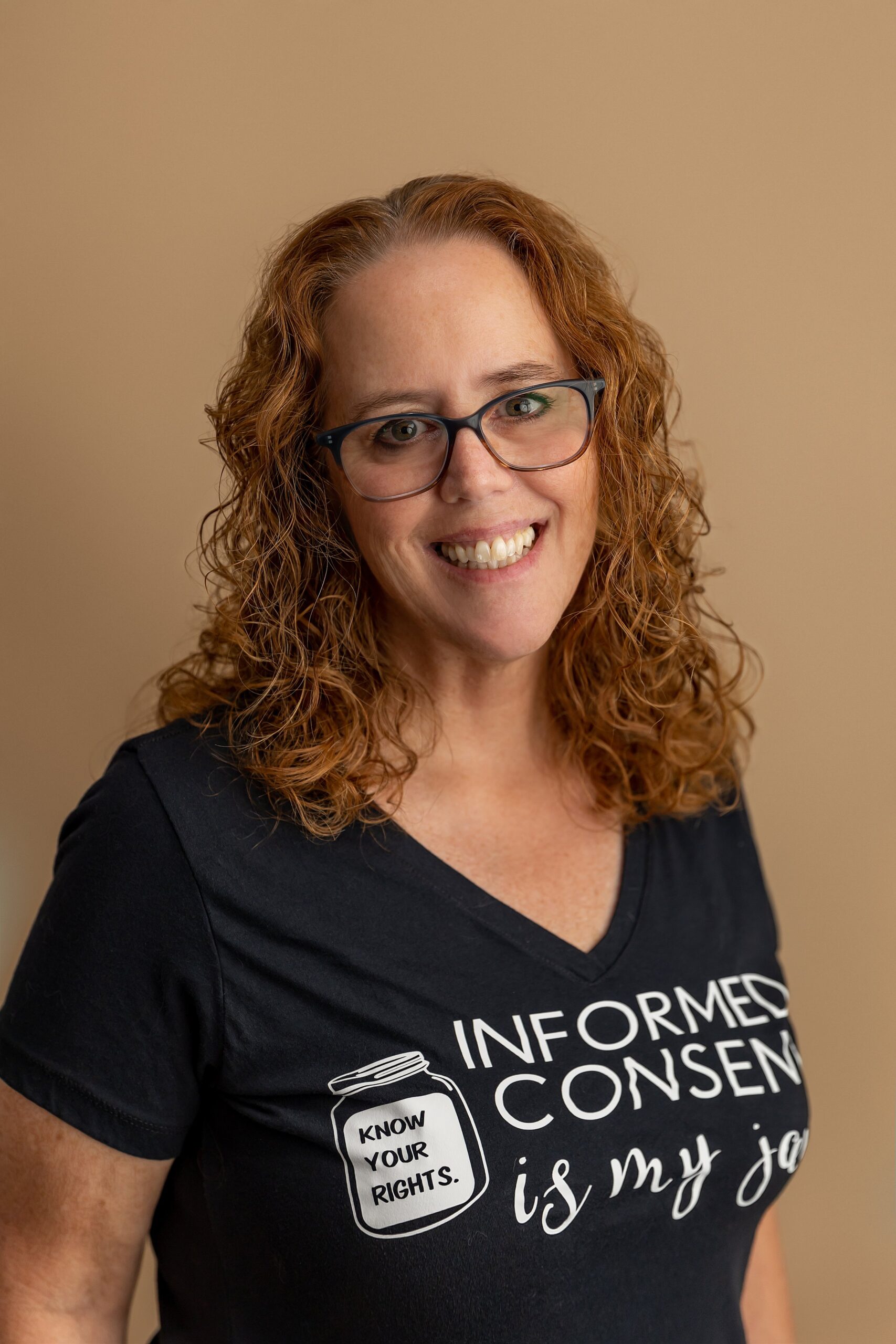Midwifery has been practiced for centuries, yet it often feels like a well-kept secret in the modern world of healthcare. I’ll never forget the first time I witnessed a midwife-led birth. It was at a birth center in The Woodlands, TX, and as a disillusioned labor and delivery nurse, I wasn’t expecting to be so moved. But what I saw was pure magic—a natural, peaceful, and deeply connected birthing experience that starkly contrasted with the cold, clinical, coercive approach I had known in hospitals. It was then that I realized midwifery wasn’t just an alternative—it was the way birth was meant to be. Since then, midwifery has been my calling.
So, what exactly is a midwife, and why should more women know about and consider midwife-led care for their pregnancies, births, and overall health?
The Types of Midwives: CNMs, CPMs, and CMs

In the United States, there are three main types of midwives: Certified Nurse-Midwives (CNMs), Certified Midwives (CMs), and Certified Professional Midwives (CPMs). Each type of midwife has a unique role, although all provide exceptional care during pregnancy, labor, birth, and beyond.
- Certified Nurse-Midwives (CNMs): CNMs are registered nurses with specialized training in midwifery, allowing them to provide care in various settings, including hospitals, birth centers, clinics, and even homes. They can prescribe medications, order tests, and care for newborns. What sets CNMs apart is their dual role—they are trained nurses as well as midwives, making them the most versatile in terms of where and how they can provide care.
- Certified Midwives (CMs): Like CNMs, CMs complete accredited midwifery education programs and must pass a national certification exam. The difference is that CMs do not need to be nurses to practice. They work in hospitals, birth centers, and home birth settings and can also prescribe medications and order tests.
- Certified Professional Midwives (CPMs): CPMs often receive training through apprenticeship programs or accredited education programs, but their certification process differs from that of CNMs and CMs. They focus primarily on home births and birth centers and cannot prescribe medications in most cases. CPMs are highly skilled in out-of-hospital births, making them experts in natural birth settings.
The Roles of Midwives: More Than Just Birth

Midwives do much more than help bring babies into the world. In fact, about 1 in every 10 women who give birth in the U.S. each year is cared for by a midwife. CNMs and CMs, in particular, provide comprehensive reproductive health care, which includes annual physical exams, birth control management, care through menopause, and screenings for sexually transmitted infections.
One of the things I love about being a midwife is that we don’t just treat a medical condition. We treat the whole person. We develop deep, trusting relationships with our clients. That’s something that sets midwifery care apart—our ability to blend medical knowledge with compassionate care that respects the unique goals, desires, and needs of each person and family.
Why Choose a Midwife for Your Pregnancy?
Pregnancy is a normal life event, not a medical emergency. As midwives, we approach pregnancy and birth with the philosophy that most pregnancies are healthy and that we’re there to support that natural process. However, we’re also highly trained in recognizing when something is outside the norm and requires extra attention. That balance—between respecting the natural process and being ready for the unexpected—is what makes midwifery care so valuable.
Midwives provide evidence-based care, meaning we rely on the latest research to guide our decisions. But the heart of midwifery is about relationships and individualized care. We’re there with you throughout your pregnancy, birth, and postpartum journey, offering support, education, and partnership. We help empower our clients to make informed decisions about their health, ensuring that their choices are respected.
The Difference Between Birth Settings: Hospitals vs. Birth Centers vs. Home Birth
This is one of the most common questions I get—should I have my baby in a hospital, a birth center, or at home? And the truth is, it depends on what’s right for you and your baby. Midwives provide care in all these settings, but the experience can be very different.
- Hospital Births: Hospitals can feel cold, clinical, and sometimes impersonal. You’re often treated like a number, rushed through an assembly line of protocols and procedures. I’ve seen firsthand how many hospitals prioritize efficiency over the patient’s individual needs. That said, hospitals have the benefit of immediate access to medical interventions like surgery if complications arise. For some women, this is a comfort.
- Birth Centers: Birth centers are the middle ground between home and hospital births. They offer a more intimate, home-like environment while still having medical equipment available. Birth centers tend to focus on natural birth and are usually run by midwives. This is where I fell in love with midwifery, and it remains a beautiful setting for many women seeking a more personal, yet still supported, birthing experience.
- Home Births: There’s nothing quite like a home birth. It’s calm, peaceful, and empowering. Many women feel more comfortable and in control in their own home, surrounded by familiar settings and loved ones. Home births with a trained midwife are as safe as hospital births for healthy women, and they allow for a deeply personal and uninterrupted birth experience. Midwives bring essential equipment, and we always have a transfer plan in place if needed.
Addressing Common Myths About Midwifery

One of the biggest challenges midwives face is dispelling myths about our care. I recently spoke with a woman who asked what I did for a living. When I told her I was a midwife, she said, “Wow, is midwifery still a thing?” It’s shocking how many people don’t realize that midwives exist, let alone understand what we do.
Let’s address some common myths:
- Myth #1: Midwives aren’t as qualified as doctors. Midwives are highly trained professionals. CNMs, in particular, have graduate-level education and are certified to provide primary and reproductive health care. We also collaborate with doctors when necessary, ensuring the safest care for both mother and baby.
- Myth #2: Midwives only assist with home births. Not true! Midwives work in hospitals, birth centers, and homes. We’re flexible and skilled in all these environments.
- Myth #3: Midwifery care is less safe. Studies consistently show that midwife-led care, especially for low-risk pregnancies, is just as safe as care provided by obstetricians. We are experts in recognizing complications and know when to involve additional medical professionals.
Current Trends in Midwifery: A Growing Movement

In recent years, midwifery care has seen a resurgence. More and more women are choosing midwives, opting for home births or birth center experiences over traditional hospital settings. This shift is part of a broader movement towards personalized, patient-centered care, where women are empowered to make informed decisions about their health.
I’m particularly excited about the growing recognition of midwives in mainstream healthcare. As more studies show the benefits of midwife-led care, more midwives work within hospitals and collaborate with other healthcare providers. The USA is lagging behind the rest of the world in this trend, but I am optimistic that change is coming. This blending of midwifery and traditional medicine creates a comprehensive, compassionate care model that benefits everyone.
Personal Reflections: Why Midwifery Is My Calling

Being a midwife is not just my job; it’s my calling. From the first time I witnessed that midwife-led birth, I knew this was what I was meant to do. Midwifery allows me to provide deeply personal, evidence-based, and empowering care. I believe in the power of birth and the strength of women. I’ve been blessed to help over 700 women bring their babies into the world, and each birth is a reminder of why I love what I do.
Midwifery is about trust, connection, and respect. It’s about creating a space where women feel heard, supported, and empowered to make the best decisions for themselves and their families. I wouldn’t trade this work for anything in the world.
Conclusion
Midwives are essential healthcare providers, offering a compassionate, personalized approach to pregnancy, birth, and reproductive health. Whether you’re considering a hospital, birth center, or home birth, midwives provide evidence-based, individualized care that respects your choices. In an era when more women are seeking alternatives to traditional hospital births, midwifery stands out as a safe, empowering option.
— Stay Strong! Jaelin —
Additional Reading:
- Discover Midwives: What is a Midwife?
Learn more about midwives, their role, and the care they provide.
https://www.discovermidwives.com/what-is-a-midwife - National Association of Certified Professional Midwives (NACPM): Who are CPMs?
Understand the role of Certified Professional Midwives and the care they offer.
https://www.nacpm.org/who-are-cpms - Childbirth Connection: Choosing a Maternity Care Provider
A guide on how to select the right maternity care provider for you.
https://www.childbirthconnection.org/choosing-a-caregiver - Black Birthing Bill of Rights
Learn about the rights that protect Black birthing individuals in healthcare settings.
https://thenaabb.org/black-birthing-bill-of-rights - American College of Nurse-Midwives: Midwifery and Women’s Health Care
Explore how midwives support women’s health across the lifespan.
https://www.midwife.org/Midwifery-and-Womens-Health-Care

About the Author:
Jaelin Stickels, CNM, WHNP, is a deeply passionate and highly skilled Certified Nurse Midwife, Women’s Health Nurse Practitioner, and the owner of Holistic Heritage Homebirth in Houston, Texas. With over a decade of experience, Jaelin has had the privilege of helping several hundred women welcome their babies into the world. In addition to her advanced practice licensure training, she has additional advanced training in twin and breech births, making her one of only a few with these skills in her area. Jaelin approaches every birth with expertise, compassion, and a deep respect for the birthing process. Jaelin is finishing her doctorate and looking forward to being Dr. Jaelin in early 2025.
Jaelin’s journey into midwifery began with a profound love for supporting women through the incredible experience of pregnancy, labor, and postpartum. Since 2010, she has been dedicated to walking alongside families during these transformative moments, offering guidance, support, and care tailored to each individual’s unique needs. She is a big believer in informed consent and ensures clients are given the best evidence-based information to make the best decisions for themselves and their families.
Married to her high school sweetheart Ted (aka Chef Ted) since 1984, Jaelin is the proud mother of three grown children and the delighted grandmother of one amazing granddaughter. When she’s not assisting in births, Jaelin finds joy in going to the movies with her husband, quilting, and cherishing time with her family. Known by the other midwives in her practice (Holistic Heritage Homebirth) affectionately as the “Birth Hog,” she brings an unmatched dedication and enthusiasm to her work—no one loves birth quite like she does.


